- Home
- Resources
- SOUL Publications
- Corktown Commons Case Study
Case Study of the Use of Organic Land Care Practices in a City Park
Corktown Common Park
Completed in 2014, Corktown Common is a 7.3 hectare (18 acre) park in the heart of Toronto that combines the technical requirements of flood management with the design of a multi-use urban park. The site is a former industrial brownfield located west of the Don River. Today, the park is an ecologically diverse landscape that attracts people and fauna throughout the year. This award-winning park is a destination that draws from across the city and establishes a new benchmark for ecological diversity and organic land care in Toronto’s park system.
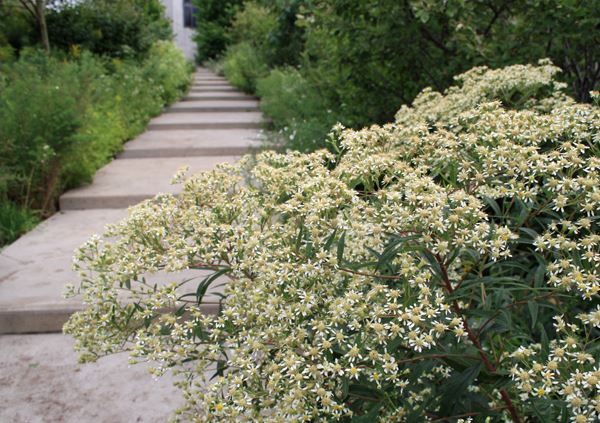 DESIGN
DESIGN
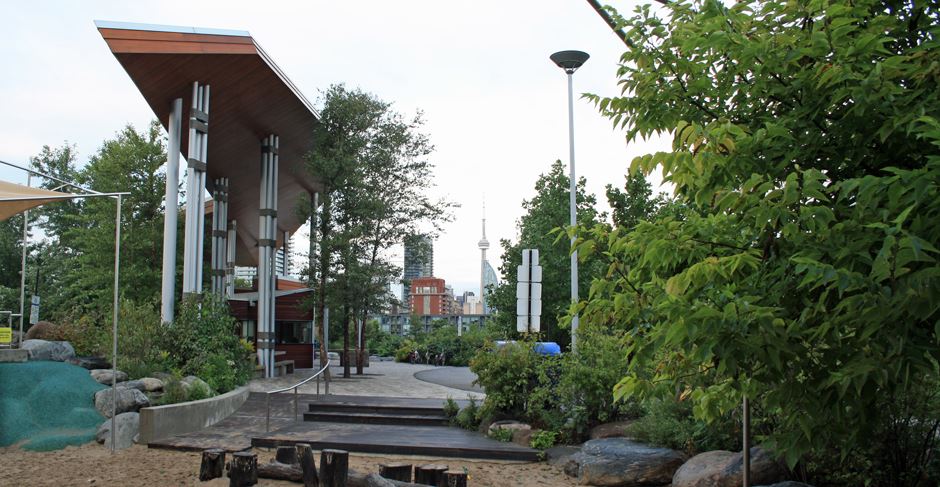
CHOOSING ORGANIC LAND CARE
The founding principle of maximizing regionally appropriate biodiversity, and the subsequent resiliency and function of the landscape, is achieved through the implementation of organic land care standards and maintenance practices.
Corktown Common was the first park in the City of Toronto to be maintained using strictly organic horticultural practices. Specially trained Toronto Parks horticultural staff implement organic methods that are geared to the landscape’s specific habitats and uses. The organic maintenance program covers all aspects of the park except the turf and consists of several components including soil management, invasive plants management, composting, as well as the selection and placement of native plant species found in southern Ontario.

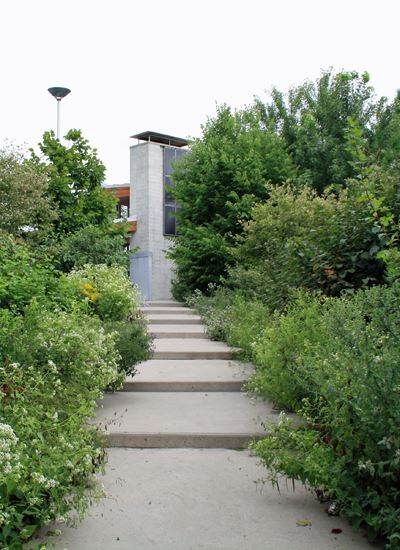 IMPLEMENTING ORGANIC LAND CARE
IMPLEMENTING ORGANIC LAND CARE
STAFF TRAINING AND CERTIFICATION: In the first year, the City selected maintenance staff to work at Corktown Commons based on an assessment of their expertise and knowledge. Those staff who passed an in-house organic horticultural knowledge assessment were given the opportunity to be part of the maintenance crew at Corktown. In addition, a few managers completed Gaia College’s Organic Horticulture Specialist course on-line or through an accelerated course at Humber College.
OUTSIDE EXPERTISE: For the first two years, the City of Toronto hired an external Organic Land Care Professional to provide monthly half-day training on organic horticulture practices for soil and plant health. The consultant worked with the park’s maintenance crew to carry out site inspections throughout the park to respond to any issues and determine best practices. The consultant developed lists of materials and supplies for organic horticulture and wrote monthly reports with recommendations on next steps.
GUIDELINES AND STANDARDS: The landscape design firm, together with trained staff, created a site-specific Organic Landscape Maintenance manual for Corktown Common. The manual provided an overview of organic maintenance principles and standards to manage and sustain the functioning of the diverse ecological systems within the park landscape. This manual is regularly reviewed and updated and is a valuable resource for staff.

 Active play area with safety surface and natural boulders
Active play area with safety surface and natural boulders Aspen Woodlot
Aspen Woodlot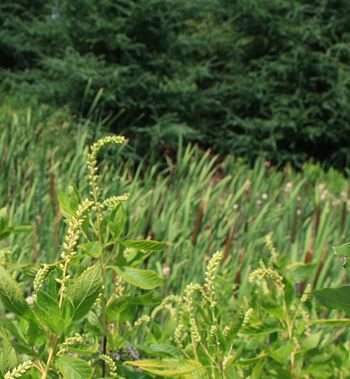 Sweetspire, Cattails and Tamarack
Sweetspire, Cattails and Tamarack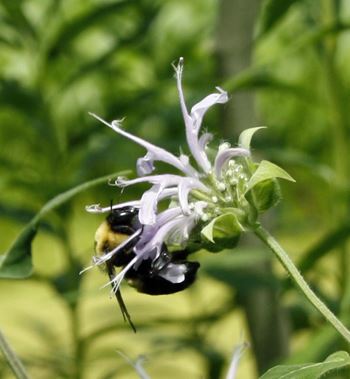 Bumblebee on Monarda
Bumblebee on Monarda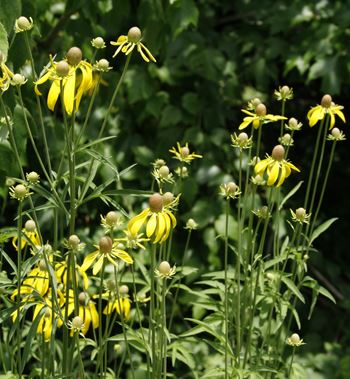 Grey-headed Coneflower
Grey-headed Coneflower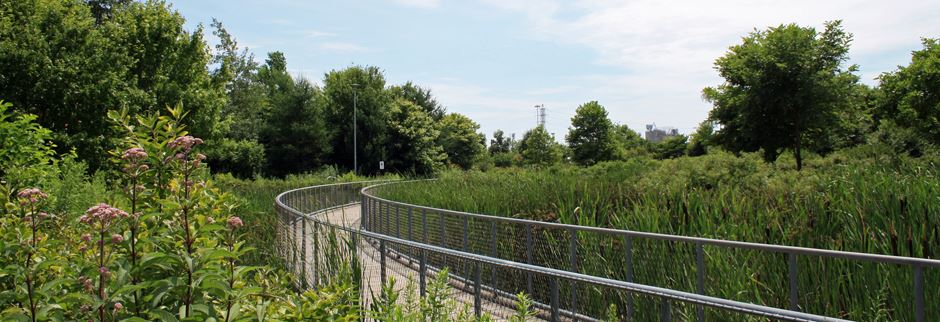 Boardwalk through flood mitigation wetland
Boardwalk through flood mitigation wetland
 GOING FORWARD
GOING FORWARD

